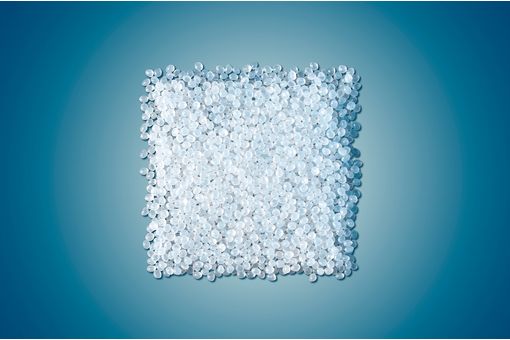Interviews
Plaudits for newcomer Ukraine's import licensing efforts
21 Oct '08
4 min read
Ukraine, which only joined the WTO in May this year, was praised in the 20 October 2008 meeting of the Import Licensing Committee for its speed in informing WTO members about its licensing procedures. The chairperson contrasted this with the fact that 21 members have never supplied information on their procedures, including some members that recently joined the WTO, although the situation has improved significantly in the past three years.
At this meeting, the committee heard a number of concerns raised about the impact that members' regimes have on trade, and undertook the latest of the near-annual reviews of how China is implementing its membership agreement. It approved its annual report to the Goods Council and its latest biennial review of the agreement's implementation — both of these will be available here in November.
Notifications, questions and answers
The Import Licensing Committee's main purpose is to ensure members' licensing regimes are transparent — as a means of ensuring that the regimes are also simple and predictable. This is largely achieved through information, questions and answers circulated in writing, some of these discussed in the meetings.
These include replies to a questionnaire, which members are supposed to answer annually so that traders can be informed about the import licensing procedures their exports and imports have to face when traded internationally.
Among the issues discussed this time:
Brazil — the US, China and Thailand asked about import licensing for toys. They said their exporters face a number of obstacles. Among the questions: how toys fit into Brazils' criteria for non-automatic import licences in general, which range from human, animal or plant health, legitimate environmental and national security objectives, and how quotas are applied; how long approval takes and what is involved; and whether approval involves reference prices. Brazil said toys are subject to non-automatic licences because they have to meet technical standards, which have been notified to the WTO's Technical Barriers to Trade Committee. It denied that reference prices are used and explained the timetable for approval.
Brazil was also questioned by the US about its controls on lithium carbonate and hydroxide, a concern the US has raised repeatedly for almost three years. Brazil repeated its explanation that the controls are needed because the lithium compounds can be used in nuclear technology.
India — the US asked whether its list of products subject to import licensing is up-to-date, and about requirements for boric acid, including when not used as an insecticide. India said had already circulated written replies, which includes the questions with the responses)
Indonesia — the US and Thailand were concerned that reported new import licensing would be used to protect domestic sugar producers. Indonesia said it is not planning a new import licensing regime but it is still waiting for more detailed replies from its capital.
At this meeting, the committee heard a number of concerns raised about the impact that members' regimes have on trade, and undertook the latest of the near-annual reviews of how China is implementing its membership agreement. It approved its annual report to the Goods Council and its latest biennial review of the agreement's implementation — both of these will be available here in November.
Notifications, questions and answers
The Import Licensing Committee's main purpose is to ensure members' licensing regimes are transparent — as a means of ensuring that the regimes are also simple and predictable. This is largely achieved through information, questions and answers circulated in writing, some of these discussed in the meetings.
These include replies to a questionnaire, which members are supposed to answer annually so that traders can be informed about the import licensing procedures their exports and imports have to face when traded internationally.
Among the issues discussed this time:
Brazil — the US, China and Thailand asked about import licensing for toys. They said their exporters face a number of obstacles. Among the questions: how toys fit into Brazils' criteria for non-automatic import licences in general, which range from human, animal or plant health, legitimate environmental and national security objectives, and how quotas are applied; how long approval takes and what is involved; and whether approval involves reference prices. Brazil said toys are subject to non-automatic licences because they have to meet technical standards, which have been notified to the WTO's Technical Barriers to Trade Committee. It denied that reference prices are used and explained the timetable for approval.
Brazil was also questioned by the US about its controls on lithium carbonate and hydroxide, a concern the US has raised repeatedly for almost three years. Brazil repeated its explanation that the controls are needed because the lithium compounds can be used in nuclear technology.
India — the US asked whether its list of products subject to import licensing is up-to-date, and about requirements for boric acid, including when not used as an insecticide. India said had already circulated written replies, which includes the questions with the responses)
Indonesia — the US and Thailand were concerned that reported new import licensing would be used to protect domestic sugar producers. Indonesia said it is not planning a new import licensing regime but it is still waiting for more detailed replies from its capital.
Popular News
Leave your Comments
Editor’s Pick
C Devarajan & P Raajashekar
Texvalley
Dr. Michael Duetsch & Man Woo Lee
UPM Biochemicals and Dongsung Chemical
































-Ltd..jpg?tr=w-120,h-60,c-at_max,cm-pad_resize,bg-ffffff)





.jpg?tr=w-120,h-60,c-at_max,cm-pad_resize,bg-ffffff)
.jpg?tr=w-120,h-60,c-at_max,cm-pad_resize,bg-ffffff)






